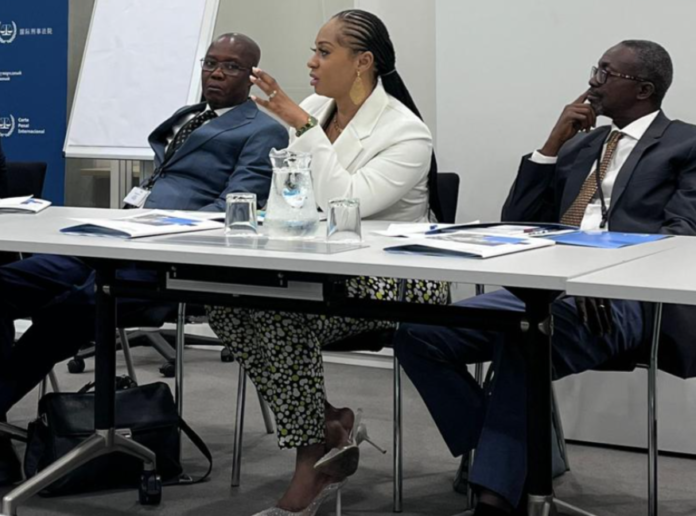
The Member of Parliament for Dome-Kwabenya constituency, Sarah Adwoa Safo, has cautioned against the possible conflict between the proposed ICC Bill seeking to domesticate the Rome Statute in Ghana and the 1992 Constitution.
Safo is worried that the jurisdiction of the ICC may clash with the sovereignty of Ghana, urging the Ghanaian authorities to exercise caution with its implementation plans regarding the Rome Statute of the ICC.
For instance, she explained that Article 1(2) of the Constitution of Ghana makes the Law of the land Supreme, and any other law found to be inconsistent with any provision of it shall be null and void.
However, the proposed ICC Bill currently before the Parliament of Ghana has some provisions that state that when it conflicts with the laws of Ghana, it shall prevail over that of the former British Colony when passed into an Act.
Following the interpretation of Article 1(2) of the 1992 Constitution, no Act of Parliament shall be superior to the fundamental law of the land, the 1992 Constitution.
Furthermore, Article 11(1) of the 1992 Constitution outlines the laws of Ghana in hierarchical order. At the apex is the 1992 Constitution, followed by an Act of Parliament.
Article 11(1) of the 1992 Constitution states that “The laws of Ghana shall comprise – (a) this Constitution; (b) enactments made by or under the authority of the Parliament established by this Constitution; (c) any Orders, Rules, and Regulations made by any person or authority under a power conferred by this Constitution; (d) the existing law; and (e) the common law.”
This means that, in all intends and purposes, the provisions in the ICC Bill contradicting the Constitution of Ghana shall be deemed null and void. Safo, who is also the Vice-Chair of the newly constituted Select Committee on Constitutional and Legal Affairs of the Parliament of Ghana, made this observation during a recent working visit to The Hague. She was part of the parliamentary delegation to the ICC in The Hague, Netherlands, from 22nd to 24th July 2024.

The visit aimed to equip and deepen understanding and awareness of parliamentarians on ensuring accountability and justice for the most serious crimes of concern to the international community while fostering synergies for enhanced international cooperation.
It was also meant to facilitate dialogue with ICC officials and stakeholders to provide comprehensive information on the ICC’s mandate and functioning; promote the ratification of all amendments to the Rome Statute, including the Kampala Amendments on the crime of aggression; and provide a better understanding and advocate for the ratification of the Agreement on Privileges and Immunities of the ICC, as well as adopt relevant cooperation agreements between Ghana and the ICC.
Another observation made by Safo, who is also the Ranking Member of the Subsidiary Legislation Committee and Member of the Health Committee, was the difference in the age of culpability/criminal liability for the four crimes covered by the Rome Statute as against the Criminal Offenses Act of Ghana. “Under the proposed ICC Bill, persons below the age of 18 years are not criminally liable.
On the other hand, under the criminal laws and procedure of Ghana, a juvenile can be criminally charged and tried, hence, the possible legal contradictions in Ghana’s attempt at domesticating the Rome Statute.”
In Safo’s, the ICC’s authority may supersede Ghana’s national laws, potentially leading to a constitutional crisis m.
Worried about the phenomenon, she advocated for clear guidelines on how to navigate potential conflicts between the Rome Statute and Ghana’s Constitution.
“We can not compromise our national sovereignty,” she emphasized. “We need to ensure that our laws align with international standards while maintaining our independence.”
The ICC officials, having listened to Safo, allayed her fears and assured her that the Rome Statute was designed to complement national laws, not replace them.
However, the Dome-Kwabenya lawmaker remained cautious, urging her colleagues to carefully consider the potential risks and consequences of implementing the Rome Statute.
